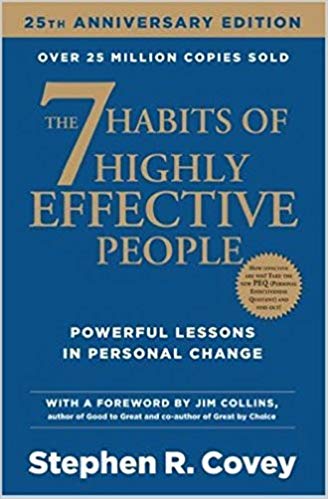

This article is an excerpt from the Shortform summary of "The 7 Habits of Highly Effective People" by Stephen Covey. Shortform has the world's best summaries of books you should be reading.
Like this article? Sign up for a free trial here .
What is Stephen Covey’s interdependence paradigm? How does Covey’s interdependence paradigm relate to the seven habits?
According to Stephen Covey, American society overvalues independence and the ability to fend for yourself. But Covey says that it is interdependence that is the key to being effective in all aspects of life—from marriage to family to the workplace.
Read more to learn Stephen Covey’s interdependence paradigm and how it relates to the seven habits.
The Interdependence Paradigm
The ultimate goal of Stephen Covey’s seven habits is to reach the paradigm of interdependence. Interdependent people can take care of their own needs, but they also recognize that a collaborative team or partnership is greater than the sum of its parts.
Covey asserts that American society overvalues independence, which may come as no surprise in a nation built on capitalism and bootstrap ambition. In a collective admiration of independence, Covey explains that American society not only rejects dependence but also undervalues interdependence, because its emphasis on working with others appears to resemble dependence. However, while independence is a critical step in the Maturity Continuum, Covey insists that interdependence is key to effectiveness—presumably not only for you but also your community.
Stephen Covey’s Maturity Continuum progresses from a paradigm of dependence to independence to interdependence. As an infant, everyone is dependent; as you go through life, you have the potential to mature physically, emotionally, and intellectually; you must reach each one before you can progress to the next (but your physical paradigm may be different than your emotional paradigm and/or your intellectual paradigm). Here is a comparison of the three paradigms.
(Shortform note: Interdependence is also critical to problem-solving in organizations, and communities. For example, while independence-oriented nationalism is on the rise, experts warn that globalist approaches are necessary to tackle the biggest challenges facing our world, including climate change, the rise of artificial intelligence, and the threat of nuclear war. And the COVID-19 pandemic reinforced the same lesson in starker terms.)
Developing Interdependence Through “Public Victories”
According to Stephen Covey, interdependence is a step up from independence (which is, in turn, is a step up from dependence). You move from dependence to independence by practicing Habits 1-3. Then, habits 4-6 build on your independence to develop interdependence through collaboration, cooperation, and communication. These are “Public Victories” that improve your interactions with others.
Habit 4: Think Win/Win
The 7 Habits all aim to help you reach interdependence, which allows you to reach your full potential by knowing how to work effectively with other people to achieve more than you could on your own. To that end, Habit 4 explains how to approach conflicts and negotiations with a Win/Win paradigm that aims to find a mutually beneficial solution, where everyone is happy with the decision and committed to the plan. People with the Win/Win frame of mind value cooperation over competition and believe that there is plenty — of money, success, happiness, and good fortune — to go around.
Habit 5: Listen and Understand the Other First
Habit 5 tackles how to have an effective interaction with someone: First work on understanding the other person’s perspective, and only then help her to understand your perspective. This approach requires empathic listening, where you’re listening with the intent to truly understand the other person’s perspectives and concerns. Only then can you determine the kind of mutually beneficial solution that a Win/Win paradigm strives to achieve.
Habit 6: Create Synergies
Habit 6 is the major achievement of independent relationships: the ability to create synergy with another person. Synergy means that two people working together can create greater results than would have been possible separately. When you have an understanding of your own paradigms and values, an appreciation of the other person’s perspective, and a genuine desire for Win/Win solutions, you can create synergy to achieve incredible, positive changes in your life that get you closer to reaching your personal mission.
———End of Preview———

Like what you just read? Read the rest of the world's best summary of "The 7 Habits of Highly Effective People" at Shortform . Learn the book's critical concepts in 20 minutes or less .
Here's what you'll find in our full The 7 Habits of Highly Effective People summary :
- How to prioritize the hundred tasks you have to focus on the one or two that really matter
- The right way to resolve every disagreement and argument
- How to avoid burning out and succeed over 20+ years






